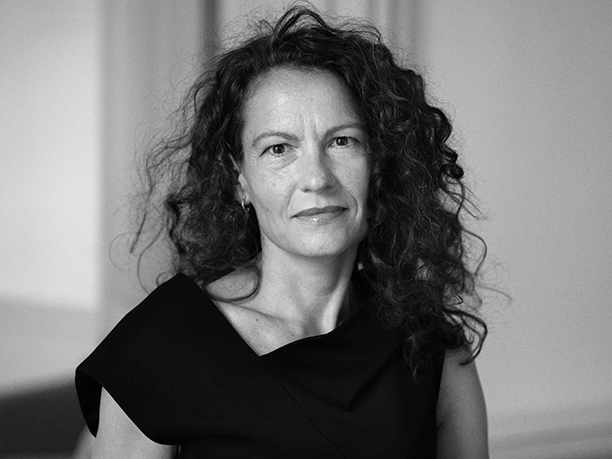Danish Act on Cultural Contribution stipulating a 2% revenue payment for VOD service providers, plus an additional 3% if investment in new Danish content is below 5%
On 19 December 2023 the Danish Parliament passed a bill on Certain Media Service Providers’ Contribution to Promote Danish Culture (the Act on Cultural Contribution). However, due to a procedural irregularity, the EU Commission had not been notified of the legislation in time, why the bill did not receive the Royal Assent, and the legislative process must be repeated.
According to the Act, providers of on-demand audiovisual media services must make an annual payment to the Danish state of 2% of their turnover in Denmark stemming from the on-demand service and an additional 3% if the investment in new Danish content is below 5%.
The explanatory notes refer to the European Audiovisual Observatory report “Investing in European works: the obligations on VOD providers” from September 2022 that includes a status on the EU member states’ introduction of financial obligations for VOD services with reference to the Audiovisual Media Services Directive (AVMSD).
According to AVMSD art. 13(2), financial contributions imposed on media service providers established in another member state that target the member state’s territory must be proportionate and non-discriminatory. The explanatory notes to the Danish Act on Cultural Contribution underline that the contribution rates of 2 or 5% are proportionate, generally follow the level for such rates in other EU member states, and that the contribution is justified as Denmark is a small language area and the market for Danish content similarly of limited size.
The nett proceeds of the contributions are expected to be divided with 20% to support public service purposes (documentaries and series) and 80% to film-funding purposes (feature productions and series), to be decided finally when the proceeds are known. Media service providers that pay the contribution may subsequently apply for funding for production of new Danish audiovisual content from these national aid schemes. The Danish Ministry of Culture assesses conservatively that the cultural contribution in total will be about DKK 98 million (EUR 13 million) yearly.
The obligation to pay the cultural contribution is imposed on all on-demand media service providers established in Denmark or in another EU member state if the on-demand media service is directed at a Danish audience. Only on-demand content is encompassed, and in case of mixed services, the contribution only concerns the on-demand content; not the linear content, including integrated catch-up as part of the linear service. Sports and news programmes are exempted. Media services with a yearly turnover below DKK 15 million (EUR 2 million) or a small audience (less than 1% of the total number of users of on-demand media services) on the Danish market are also exempted.
Further, on-demand media services offered in the course of public service activity are exempted from the payment, i.e. both services from Danish public service broadcasters such as DR and the regional TV 2 stations and services offered in the course of public service activity from providers established in another EU member state.
As regards investment in new Danish content, the explanatory notes set out that this is to be understood broadly as encompassing films, series and documentaries genres, including reality, comedy and drama, and investments in new productions, but not sports and news. Also acquisition of rights to exploit new productions counts as investment in new Danish content, whereas investment in rights to already existing content, for example acquisition of production companies’ so-called back catalogues, does not. An investment is regarded to be in Danish content when 75 pct. of the production material for European produced films, series and documentaries is in Danish and more than 50 pct. of the production budget is spent in Denmark or more than 50 pct. of the production recordings takes place physically in Denmark The investments may be distributed as an average over a 3-year period.
Media service providers must provide annual reports of their Danish turnover and investment in new Danish content (confirmed by a statement from an independent auditor), to the Danish Ministry of Culture's Agency for Culture and Palaces, so that the agency can decide on the turnover subject to cultural contribution and charge the media service provider for the contribution.
The procedural irregularity means that a bill for the Act is expected to be reintroduced, with adjustments following from the EU Commission remarks. There is now a public consultation on the adjusted parts with deadline 1 March 2024 and a bill is expected to be put forward in April 2024 allowing for the Act to enter into force on 1 July 2024.
References:
- Act on Certain Media Service Providers’ Contribution to Promote Danish Culture (the Act on Cultural Contribution) [Lov om visse medietjenesterudbyderes bidrag til fremme af dansk kultur (kulturbidragsloven)] as passed by the Parliament on 19 December 2023 (in Danish): https://www.ft.dk/ripdf/samling/20231/lovforslag/l70/20231_l70_som_vedtaget.pdf
- Bill for Act on Cultural Contribution, as introduced in Parliament on 3 November 2023 (with the explanatory notes, in Danish): https://www.ft.dk/ripdf/samling/20231/lovforslag/l70/20231_l70_som_fremsat.pdf
- Public consultation on adjusted parts of the Act, with deadline 1 March 2024 (in Danish): https://hoeringsportalen.dk/Hearing/Details/68375
- The Audiovisual Media Services Directive: https://eur-lex.europa.eu/legal-content/EN/TXT/?uri=CELEX:32018L1808
- The European Audiovisual Observatory’s report “Investing in European works: the obligations on VOD providers”, Cabrera Blázquez F.J., Cappello M., Talavera Milla J., Valais S., IRIS Plus, European Audiovisual Observatory, Strasbourg, September 2022: https://rm.coe.int/iris-plus-2022en2-financial-obligations-for-vod-services/1680a6889c
9 February 2024
Terese Foged
(This article was published in IRIS Newsletter (European Audiovisual Observatory, under the European Council)
